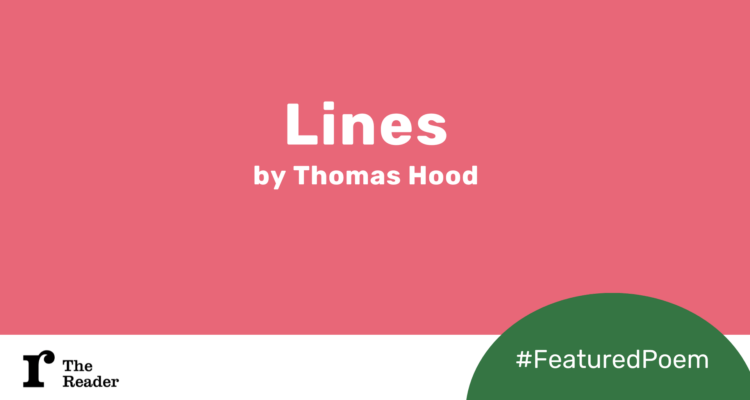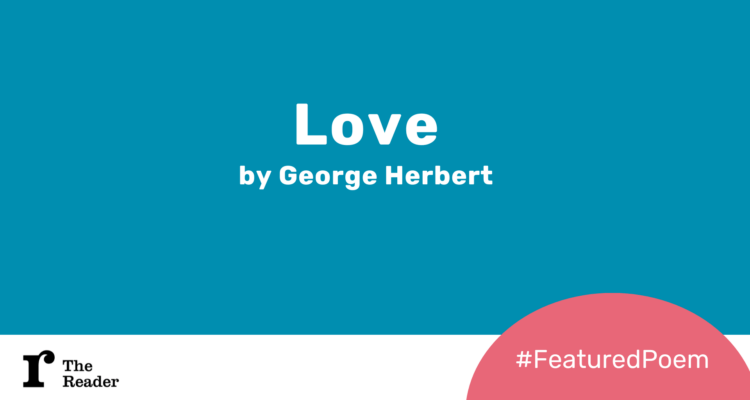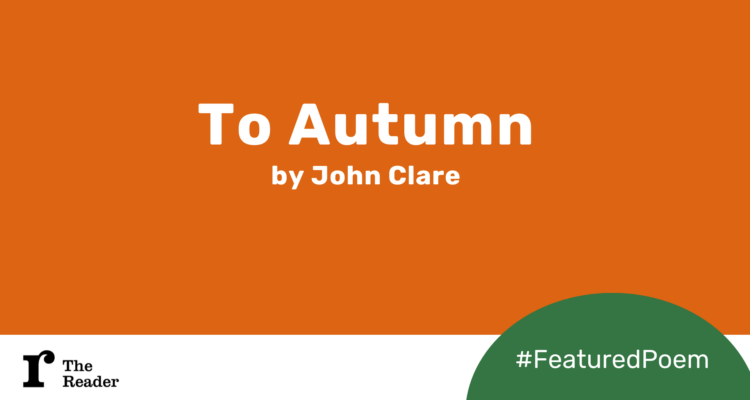Featured Poem: The Wild Swans at Coole by W. B. Yeats
Written by Rachael Norris, 13th July 2020
This week in our special series of poems to help us through the testing times ahead, Jane, a volunteer at The Reader, shares her thoughts on The Wild Swans at Coole by W B Yeats.
Although it is the wrong season at the moment, the beautiful rhythms in this autumnal poem can be enjoyed any time of year! The lilting lines seem to stick in my memory, and the first stanza often comes to mind whenever I see trees reflected in water.
I’m sure many of us have seen the majestic sight of swans swimming on a lake: Yeats invites us to observe this alongside him. There seems to be something special about swans which makes them figure in myths and stories. They are often associated with transformation: Zeus becomes a swan in the myth of Leda and seven brothers are charmed into swans in the Grimm’s Fairy Tale ‘The Six Swans’. We can share the poet’s fascination with these creatures which are so ‘mysterious, beautiful.’
There are two intriguing themes in this poem: time and love.
The poem starts in the present with the sight of 59 swans floating on the lake. This reminds the speaker of an occasion nineteen years ago when he was counting swans and they suddenly took off in flight, ‘wheeling in great broken rings’. This dramatic sight was accompanied by the sound of 50 or more pairs of wings, described powerfully as a ‘bell-beat’ above his head, which
nevertheless had a ‘lighter tread’ than the swans he witnesses today.
Since that time nineteen years previously, ‘all’s changed.’ The speaker doesn’t explain exactly what has changed but simply states a sense of sorrow in the present: ‘but now my heart is sore.’ He anticipates the swans’ departure from Coole in the future, where they will ‘delight men’s eyes’ landing on another lake far away. So we have past, present and future in this poem, held together by the annual migration of the swans, returning every October. Although the lives of men and women change, the swans are constant.
In contrast to the solitary speaker, acutely conscious of the passage of time and the sadness of life, the swans are still in pairs, ‘unwearied still, lover by lover.’ Could it really be that these are exactly the same swans he saw almost twenty years before? For the purposes of the poem, they are. Famous for their habit of mating for life, the swans seem to represent fidelity, constancy and everlasting love: ‘Their hearts have not grown old.’ So they also represent timelessness. They have not aged, or fallen out of love, unlike the speaker whose ‘heart is sore.’
I love this poem for its lilting rhythm and beautiful visual images of swans floating and flying, but also for the balanced opposites of past and present, joy and sorrow, love and solitude, constancy and change. It is a poem built around reflections:
‘Under the October twilight the water
Mirrors a still sky.’
The Wild Swans at Coole
The trees are in their autumn beauty,
The woodland paths are dry,
Under the October twilight the water
Mirrors a still sky;
Upon the brimming water among the stones
Are nine-and-fifty swans.
The nineteenth autumn has come upon me
Since I first made my count;
I saw, before I had well finished,
All suddenly mount
And scatter wheeling in great broken rings
Upon their clamorous wings.
I have looked upon those brilliant creatures,
And now my heart is sore.
All's changed since I, hearing at twilight,
The first time on this shore,
The bell-beat of their wings above my head,
Trod with a lighter tread.
Unwearied still, lover by lover,
They paddle in the cold
Companionable streams or climb the air;
Their hearts have not grown old;
Passion or conquest, wander where they will,
Attend upon them still.
But now they drift on the still water,
Mysterious, beautiful;
Among what rushes will they build,
By what lake's edge or pool
Delight men's eyes when I awake some day
To find they have flown away?
W. B. Yeats
Share
Related Articles

Featured Poem: Lines by Thomas Hood
Our Featured Poem for February is 'Lines' by Thomas Hood, selected and read by Frances. Lines by Thomas Hood Let…

Featured Poem: Love by George Herbert
The Featured Poem for January is Love by George Herbert and is from the anthology Stressed, Unstressed and is read by…

Featured Poem: To Autumn
For November's Featured Poem, Julie is reading 'To Autumn' by John Clare To Autumn by John Clare Come, pensive…


